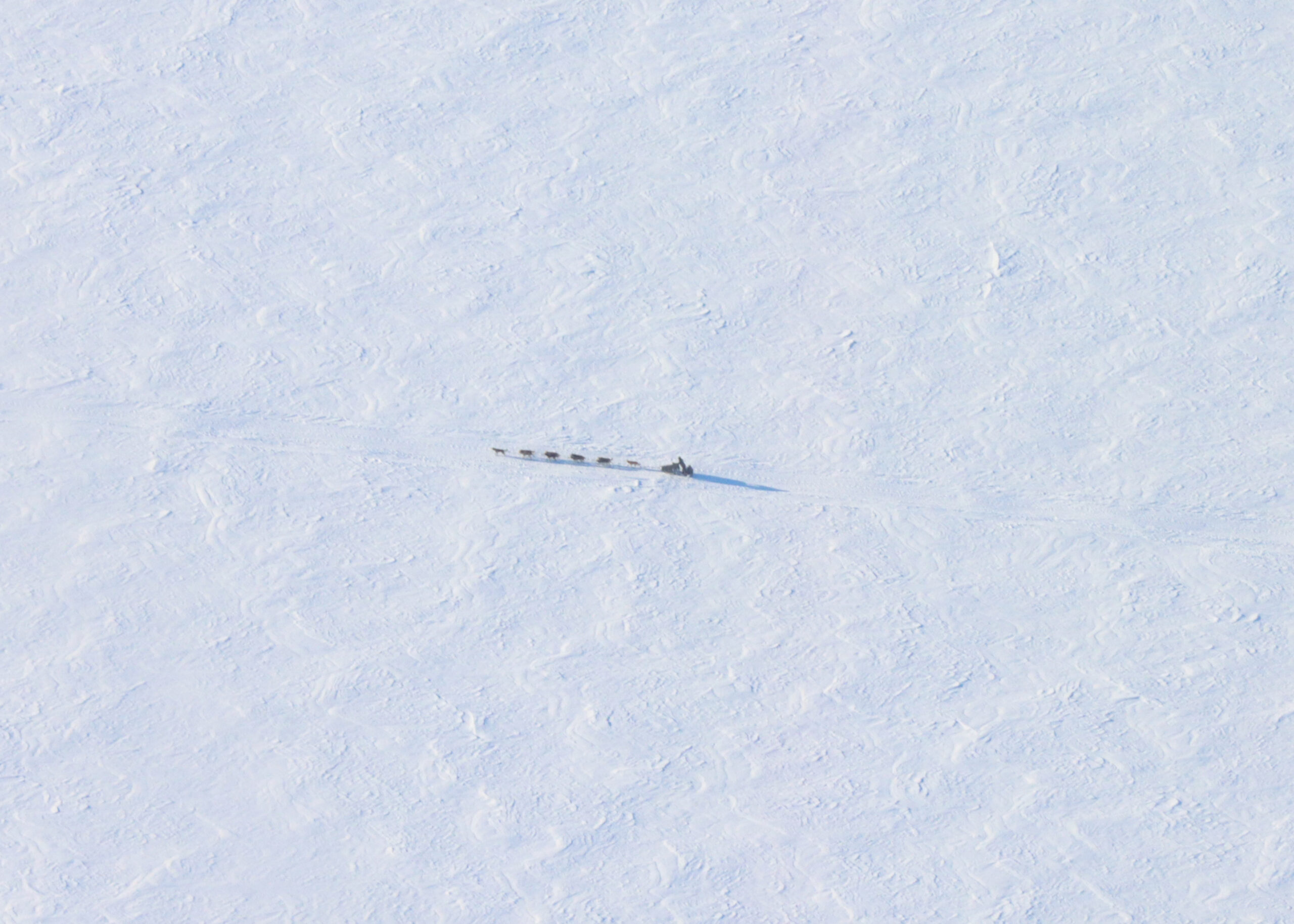
Update, 10 p.m. Monday:
Dallas Seavey is holding onto the lead in this year’s Iditarod Trail Sled Dog Race, and eyeing a record-setting sixth Iditarod win.
By 10 p.m. Monday, he and his 10 dogs were about 15 miles outside of White Mountain, the checkpoint 77 miles from Nome. All teams must stop at White Mountain for eight hours before the final push to the finish line.
Seavey left the prior checkpoint, Elim, with a nearly three-hour lead over his closest competitor: Matt Hall. If Seavey wins this year’s Iditarod he will break the record first set by Rick Swenson who notched his fifth Iditarod victory in 1991. Only Swenson and Seavey have won the Iditarod five times.
Original story, Sunday:
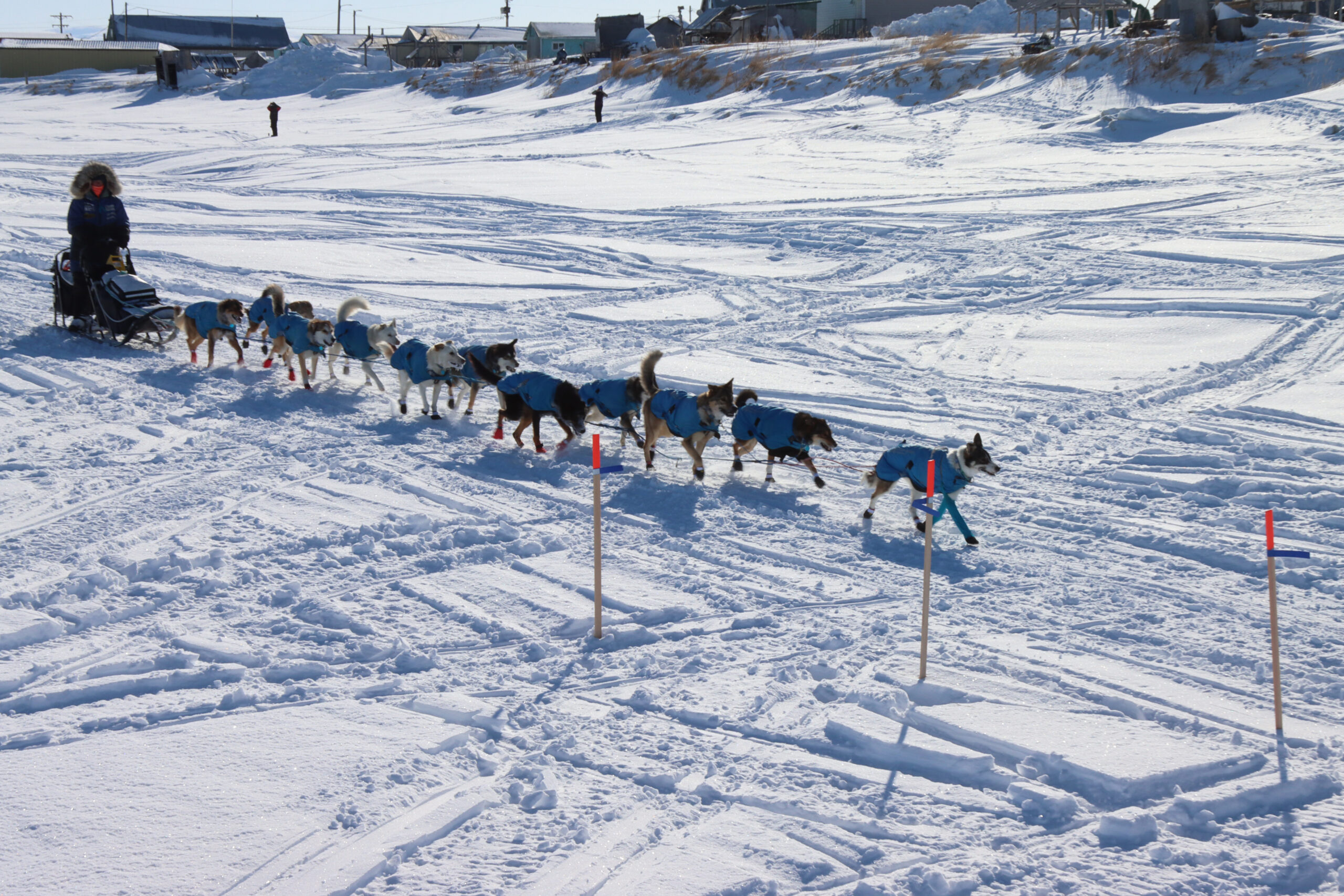
UNALAKLEET – It had been a cold night but a warm welcome for the frontrunning Iditarod Trail Sled Dog teams making it here Sunday at the western edge of Alaska.
Musher Jessie Holmes arrived in first place midday Sunday but didn’t hang onto the lead for long. Competitor Dallas Seavey, a five-time Iditarod champion, blew through the checkpoint about 20 minutes later while Holmes rested his team. Then it was Travis Beals, Matt Hall and Paige Drobny, in that order, all of whom chose to stop and give themselves and their dogs a break.
Making it to the Bering Sea coast marks another milestone for the mushers and dogs, who’ve now traveled more than 700 miles on their 1,000-mile journey to Nome. To get to the finish, though, they must face their next major hurdle: a trail that now heads north, fully exposed, through the checkpoint of Shaktoolik and across sea ice in wind chill expected to dip to 45 below zero.
The temperature had already dropped that low overnight Saturday into Sunday morning, even before the teams left the more protected inland trail between Kaltag and here.
Chilled and tired, all seven Iditarod mushers at the front stopped near Old Woman Mountain around the same time early Sunday and sheltered in a cabin of the same name.
“It was great,” Holmes said. “It was a good social atmosphere with the other mushers. Everybody was kind of cracking jokes and, you know, helping each other out, being friendly. It’s a real nice group.”
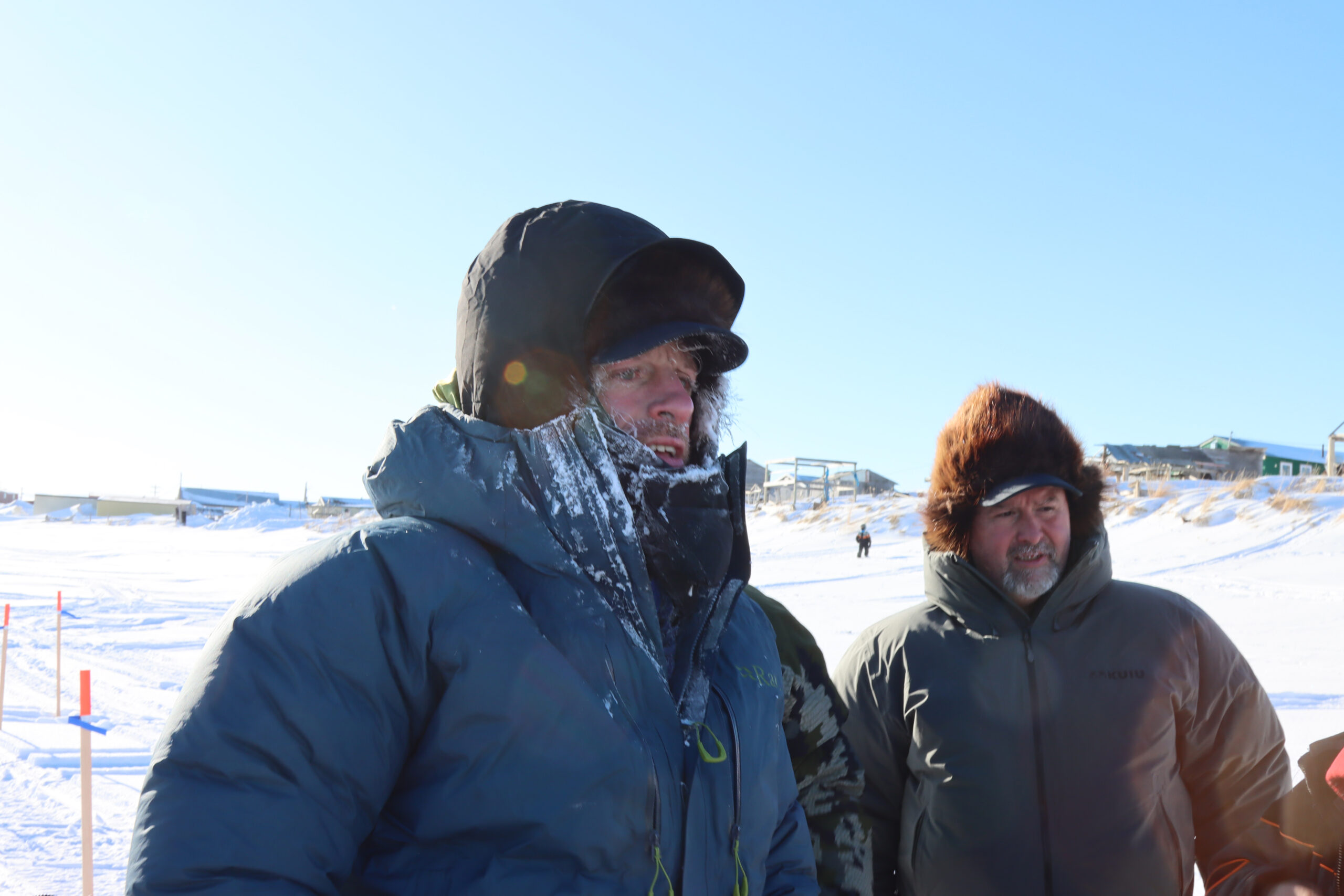
Holmes said Beals helped encourage him to get moving after his alarm went off.
“Sometimes I lack a little bit of cutthroat-ness for racing,” Holmes said. “And I was like, ‘Oh, man, you know, I haven’t slept in days. I’ll just lay here for a bit.’ And he goes, ‘I hear footsteps moving and they sound sneaky. You need to get going.’ I was like, ‘Yep, I think you’re right. I’m out of here.’”
After a cold early morning of mushing, Holmes and his 11-dog team pulled into Unalakleet around 12:30 p.m.
Holmes said he was thinking about how long to rest in the checkpoint and was curious what Seavey would do.
“He figures he’s got to do something,” Holmes said. “He can’t play my game. He knows that I’m a little less experienced, so he’s gonna make me play his, and so the chess game begins with the chessmaster.”
“I think he’s gonna do an opposing strategy to the one I’m doing now,” Holmes said, predicting Seavey wouldn’t stop. “He’ll go, I don’t know how far.”
With the sun shining on the surrounding snow in the checkpoint, Holmes made beds out of straw for his dogs, fed them and accepted some prizes: The Gold Coast Award, $1,500 in sparkling gold nuggets and a carved wooden loon, all of which Holmes said he would cherish.
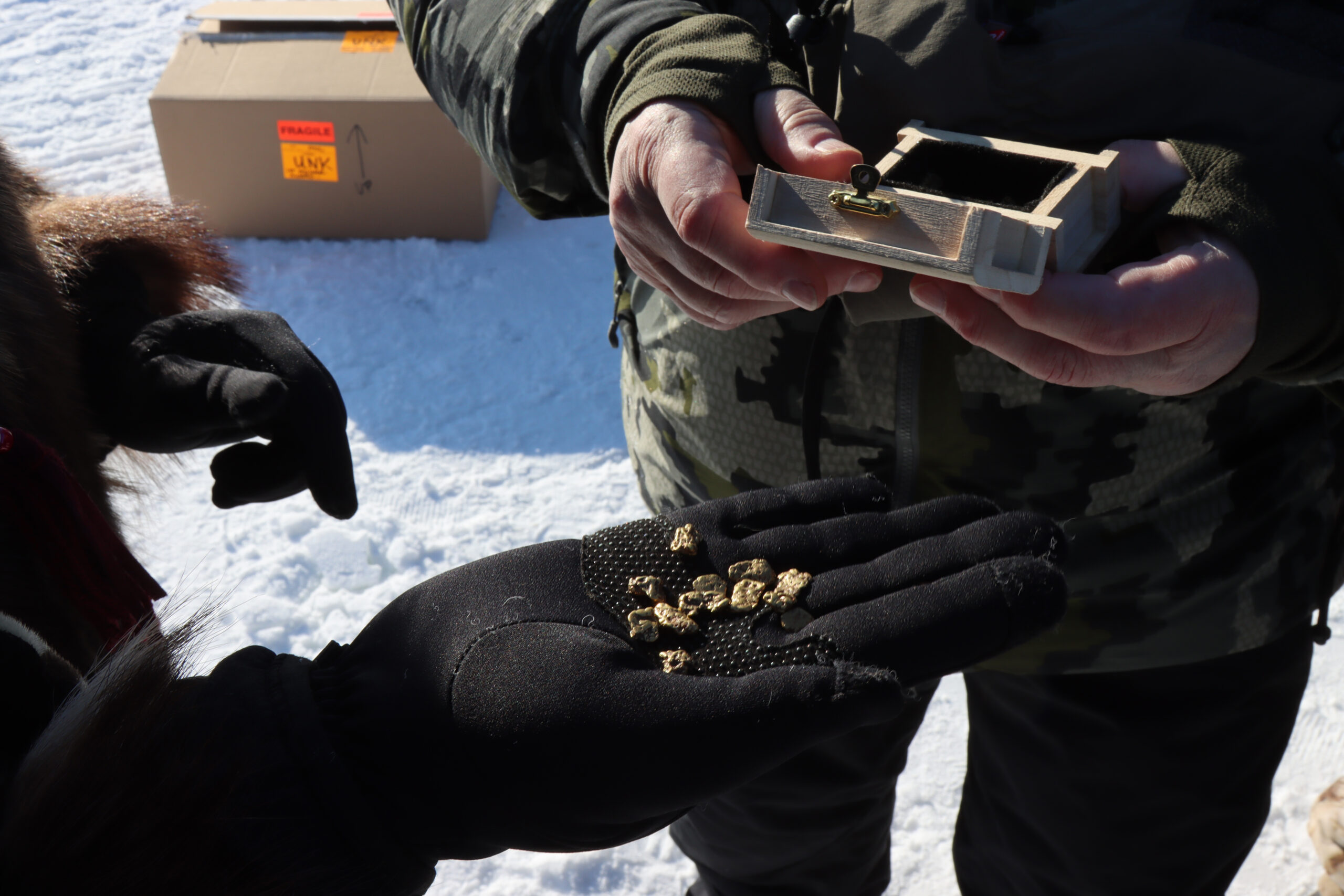
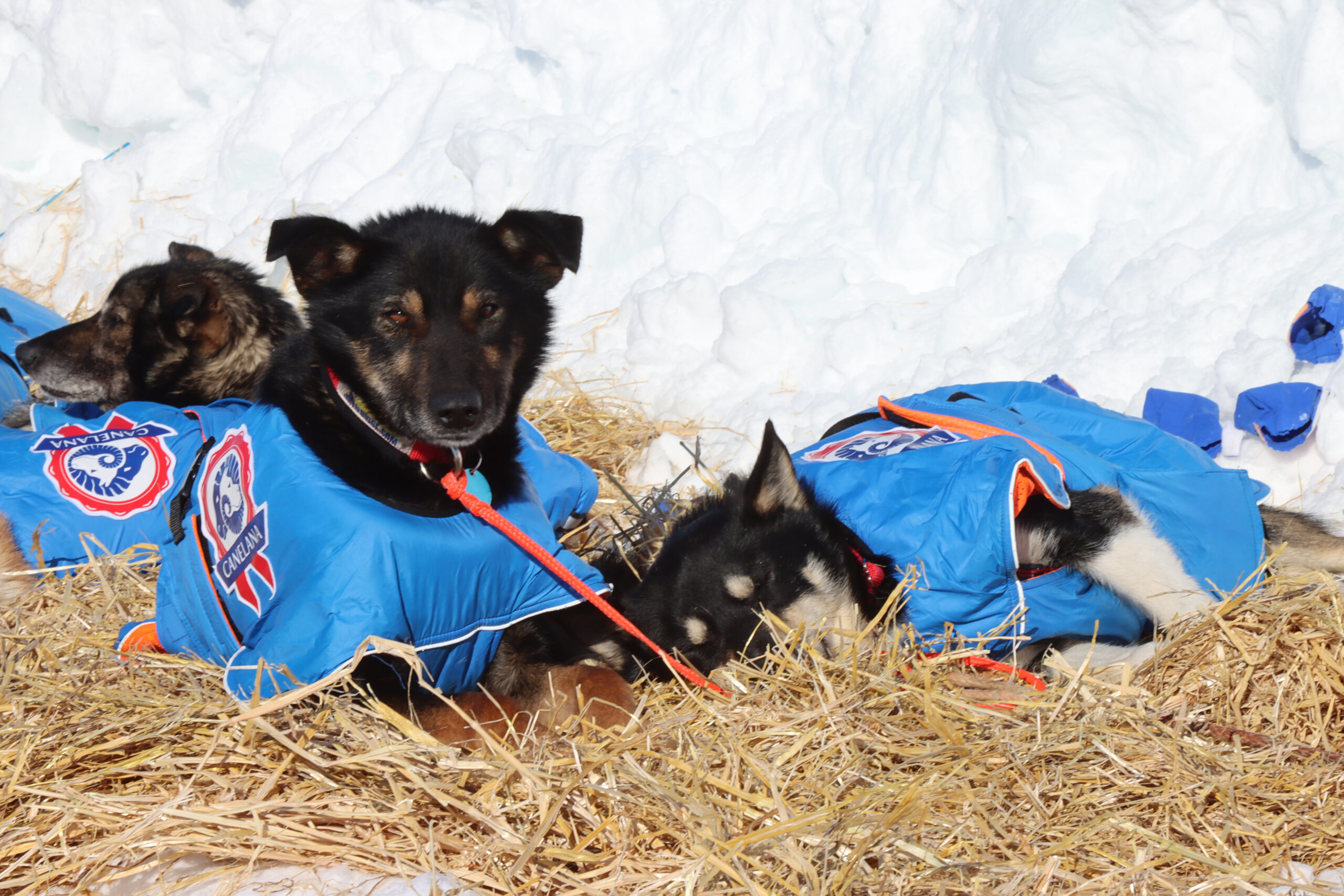
Seavey did not have time for sentimentalities. When a reporter asked him a question, Seavey didn’t answer and said he was focused on dogs, to whom he spoke encouraging words and threw chunks of meat. He hurried to his drop bags, packing human food, dog food, fuel and straw in his sled bag.
Including the standard veterinary checks, Seavey spent less than 10 minutes in the checkpoint, racing out with his 12 dogs at 12:59 p.m.
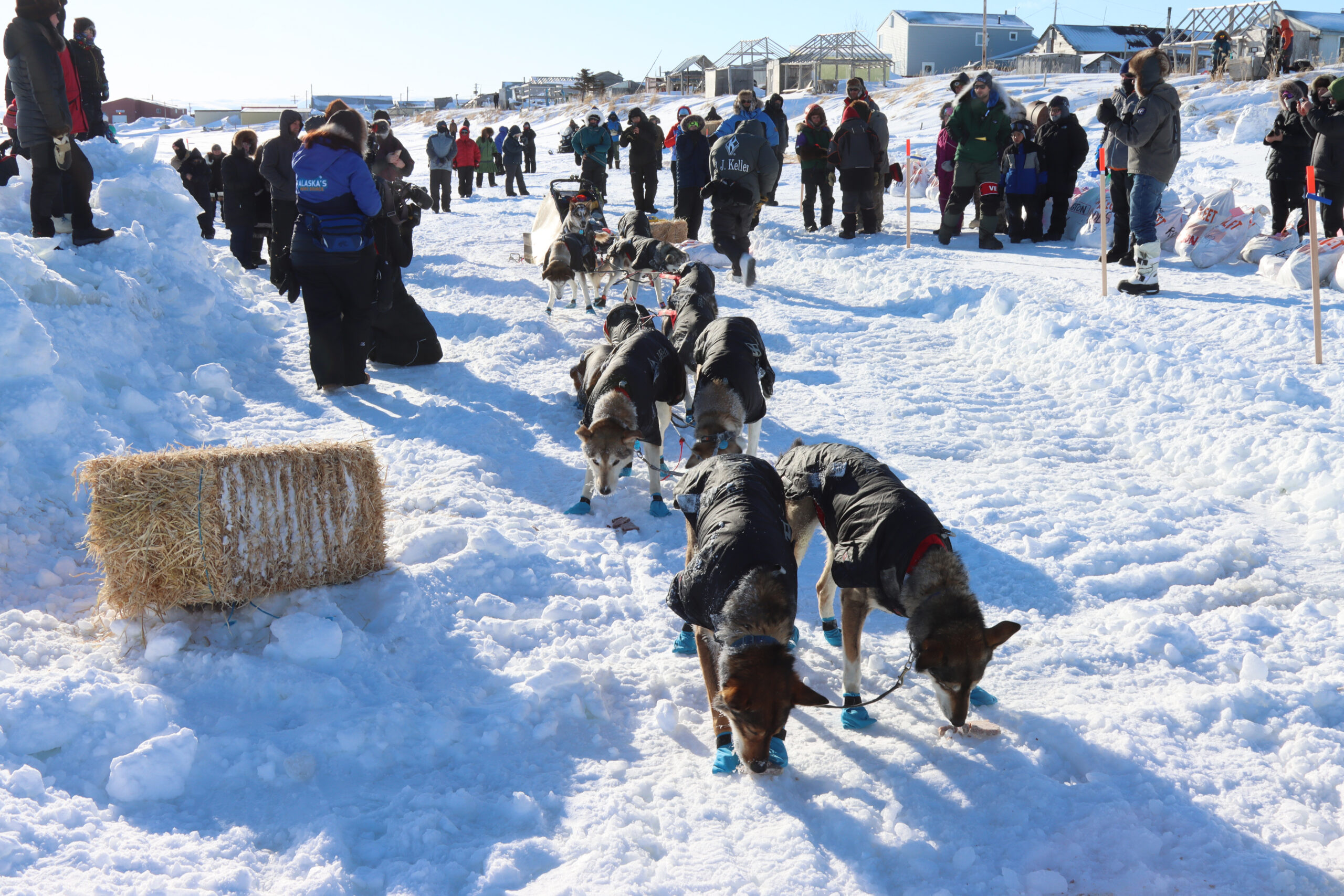
Nearly two hours later, the previous day’s frontrunner, Travis Beals, mushed in.
Beals said he’d made a mistake between Kaltag and here, setting out on a run when he shouldn’t have, after seeing some issues with dogs, though he didn’t elaborate.
“Just a bad judgment call on whether to do a run or not to do a run and it affected us,” Beals said. “I’m exhausted.”
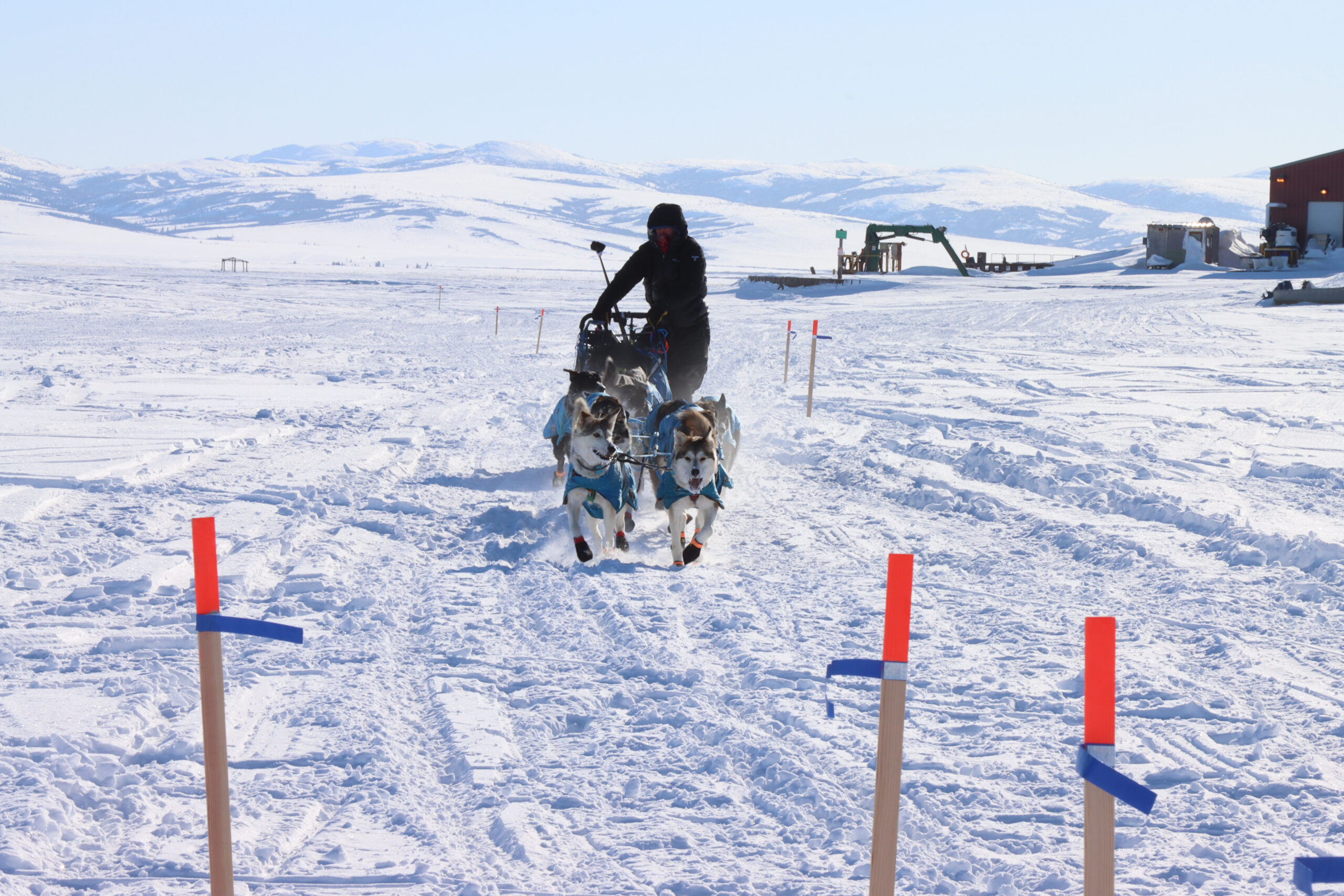
Beals also said he was having trouble seeing out of one of his eyes, which had been blurry for the past two days. He was soaked with sweat and needed to repack a new sled.
Matt Hall’s scarlet-jacketed team – dogs and musher included – came in about 20 minutes behind Beals.
While using an ax to bash apart a bag of frozen meat to feed his dogs, Hall said he wasn’t looking at the teams in front of him as much as the teams behind: Drobny and Pete Kaiser.
“I’m just gonna be tickled if we can hold the spot,” Hall said. “The guys in front, you know, in a way, I’m either going to catch ’em or not based on if things go poorly for ’em. So I’m more concerned about what’s behind me and would like to put some distance so I don’t have to keep looking over my shoulder.”
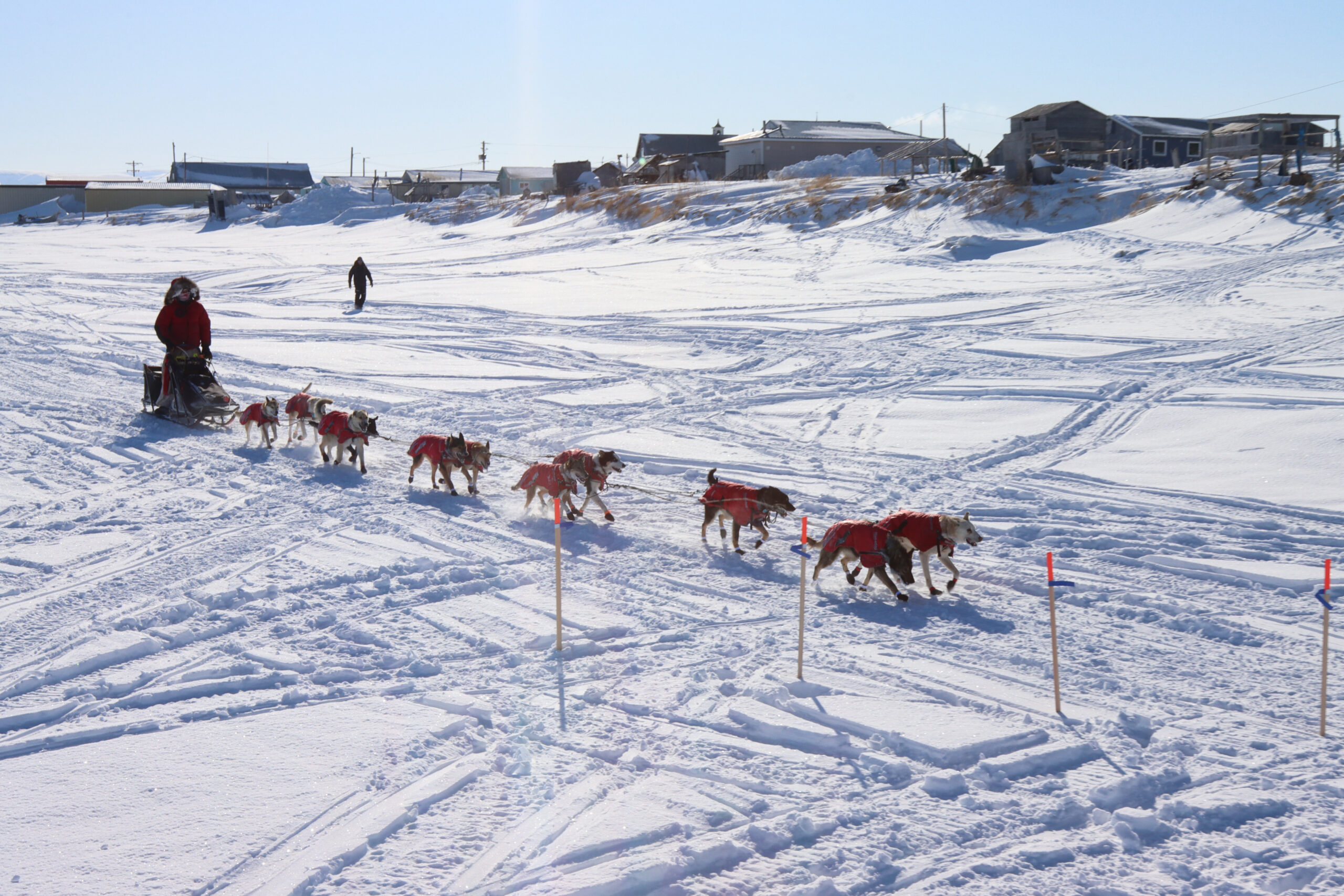
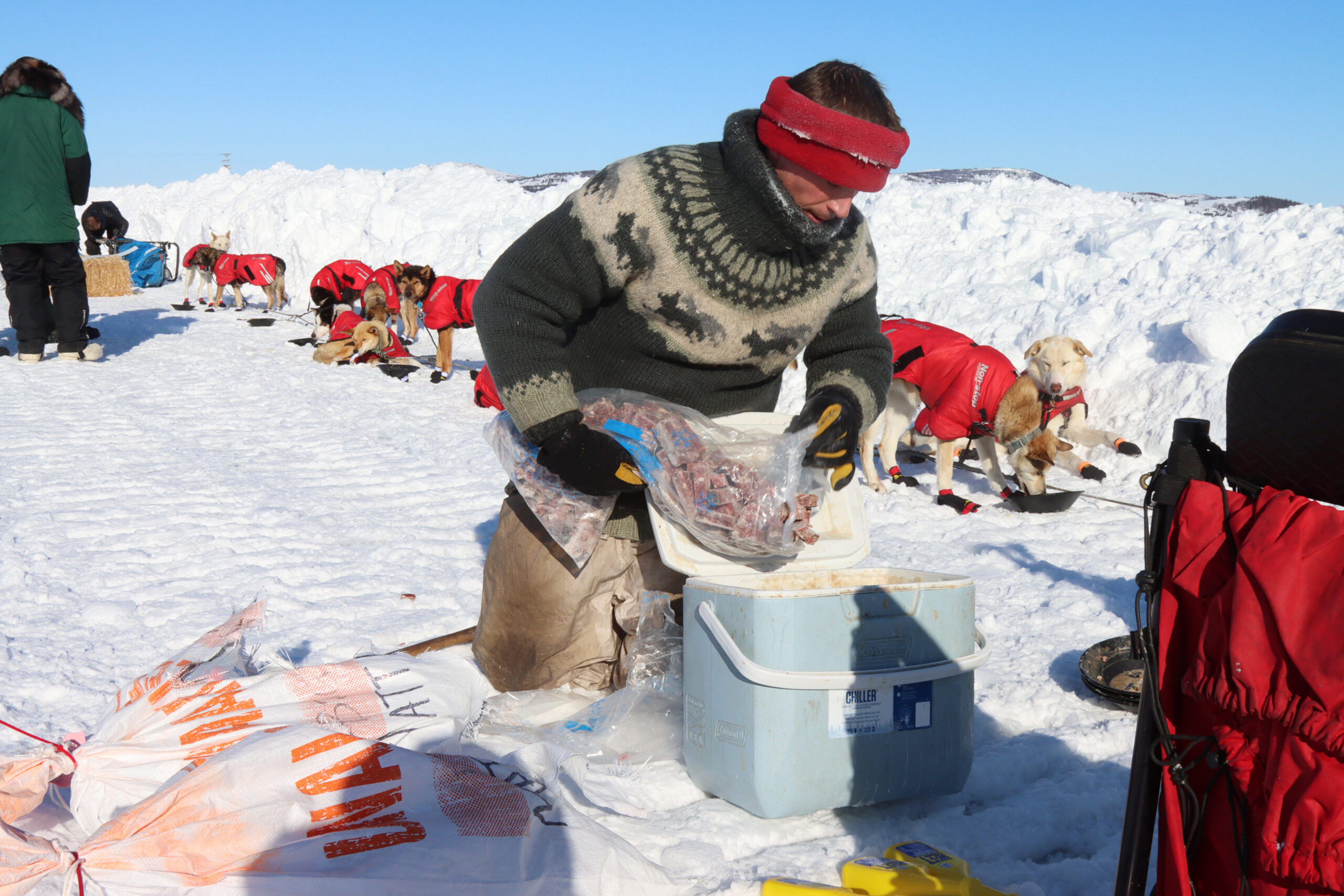
Still, after taking a three-hour break, Hall moved up to third place by leaving 10 minutes ahead of Beals, who was fourth headed toward Shaktoolik.
Drobny, who was fifth into the checkpoint, said she planned to rest longer than the others, about six hours.
Drobny said she wasn’t as concerned about her position in the race and wanted to get her canine team members feeling stronger before continuing. She left three dogs in Kaltag and had 11 still in the team.
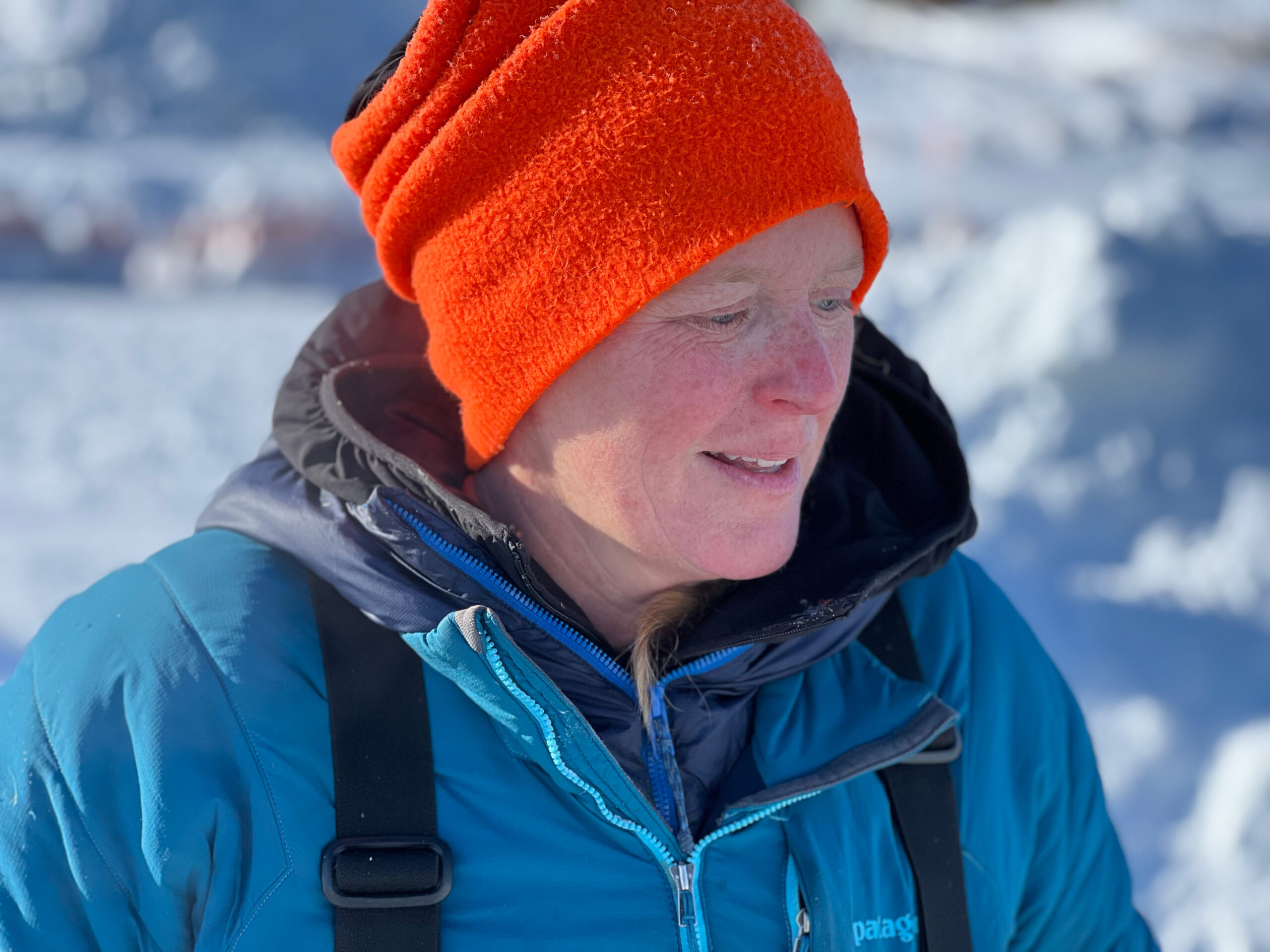
“So these two runs over here have been a little slower, a little less zip,” Drobny said. “So I’m gonna give them a little bit more rest and see what that does for them.”
Like Beals and the other mushers, Drobny said she’d been having trouble with the sleep deprivation.
“I’m having a hard time staying awake,” Drobny said. “I’ve got caffeinated gum, I’ve got caffeinated mints, I’ve got caffeinated gummies. None of them are working. It’s making me feel jittery.”
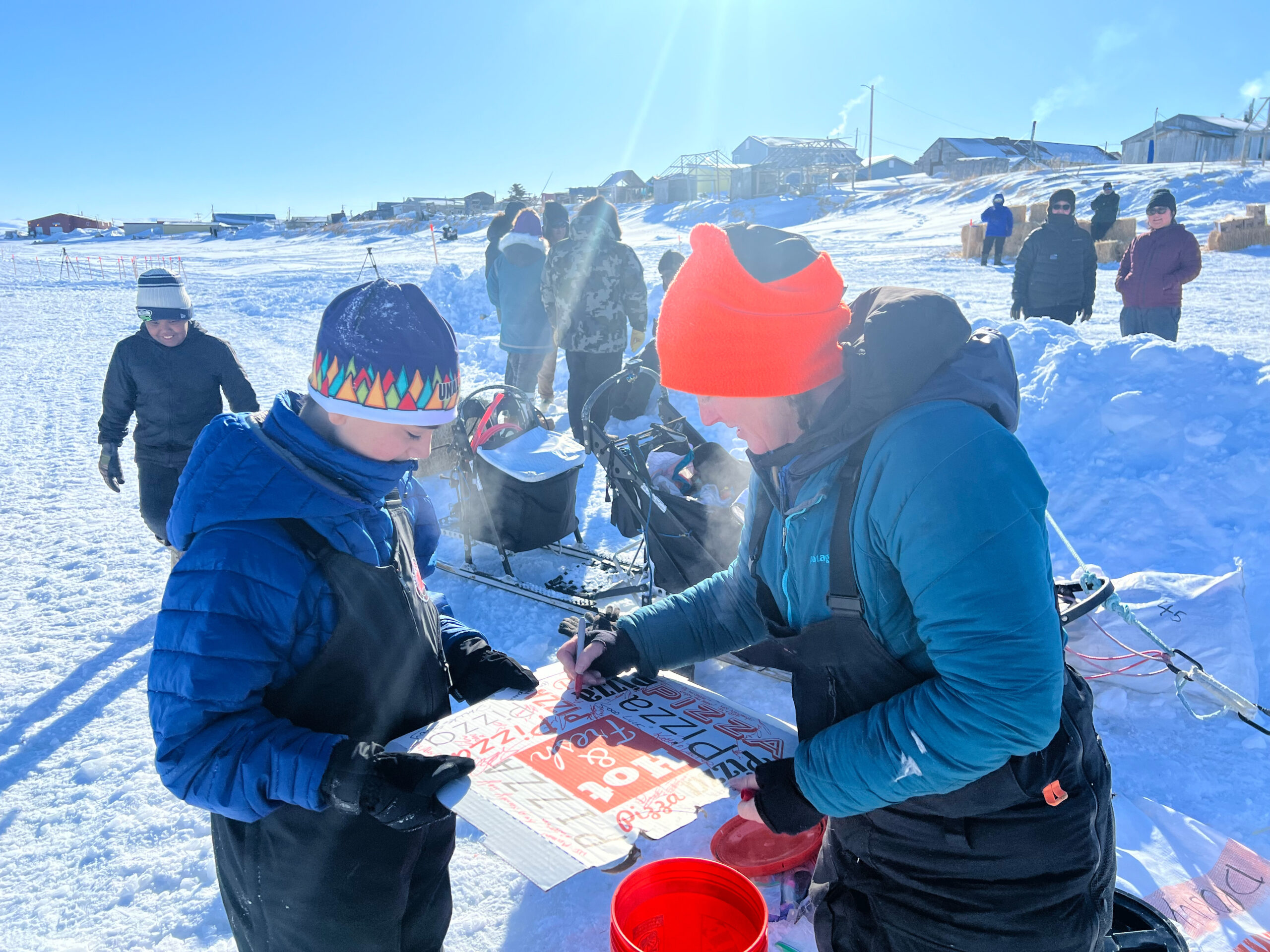
Keep our Iditarod coverage thriving! Your support today helps fund journalism at Alaska Public Media. Click here to donate.
For more Iditarod coverage visit alaskapublic.org/Iditarod and click here to subscribe to our free Iditarod newsletter, sent daily during the race.
Casey Grove is host of Alaska News Nightly, a general assignment reporter and an editor at Alaska Public Media. Reach him atcgrove@alaskapublic.org. Read more about Caseyhere.





